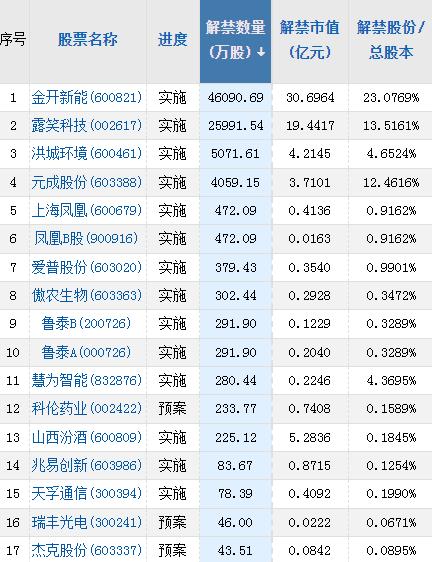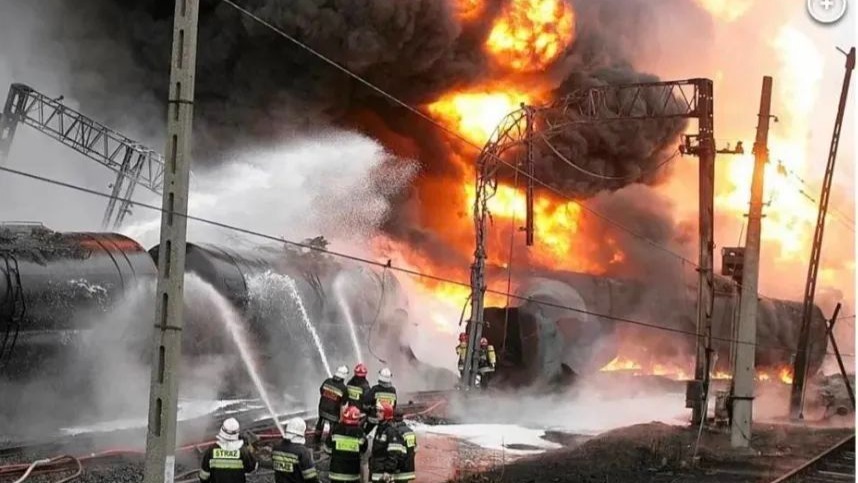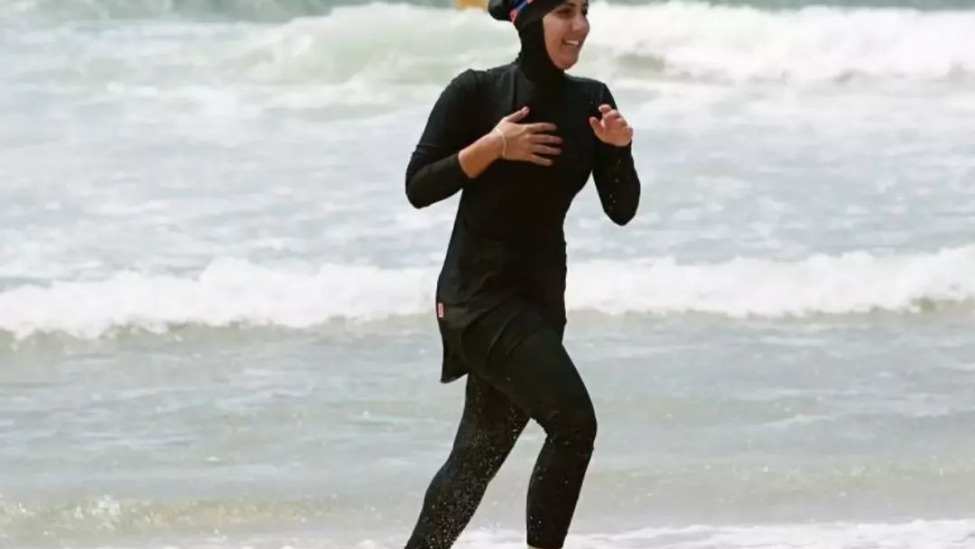要闻速递
1、3只央企股东回报ETF下周一开(kāi)售(shòu)
9日(rì),广发(fā)基金、汇添富基金(jīn)、招商(shāng)基金旗下中证国新(xīn)央企股东(dōng)回报ETF发布了份额发售公告。据公告,上述三只(zhǐ)产品都将在5 月15日至19日进行发售,其中网下认购期(qī)为5月15日至19日,网上认购期为5月(yuè)17日19日,产品募集规模上(shàng)限(xiàn)均(jūn)为20亿元,合计为60亿元。评(píng):尽管(guǎn)目前,中特估行情仍然热火朝天,但(dàn)万(wàn)物皆(jiē)有周期,盛(shèng)极必(bì)衰,投资者(zhě)要注意把握(wò)风向。
2、国(guó)企(qǐ)破净股年内净值批量修(xiū)复证(zhèng)券、电力、出版板块个股占比(bǐ)高
截至5月9日收盘,A股(gǔ)市场中累计共(gòng)有(yǒu)近140只前(qián)破净(jìng)股的市净率于年内(nèi)修复至1倍上方,其中(zhōng),国有(yǒu)企业(yè)股达(dá)86家,整体占比近63%。具体个股来看,这80余股(gǔ)平均市值近600亿元,含中国石(shí)油、中国石化、中国电(diàn)信、中国(guó)中(zhōng)车、中国(guó)中车(chē)等(děng)权(quán)重龙头(tóu)。分行(xíng)业(申万二级)统计,这(zhè)些前破净民航三个敬畏是指什么 民航三个敬畏是什么时候提出的国(guó)企股中(zhōng),所属于证券、电(diàn)力、出版板块(kuài)的个股相对较(jiào)多,同时,电视广播(bō)、多元金融(róng)、房地产开发、航(háng)运(yùn)港口、水泥、铁路公路板块的个(gè)股数量也相对居前(qián)。评(píng):按照目前中特估的轮换风格(gé)来(lái)说,还没修(xiū)复的(de)价值洼地还可能有一定的(de)机会,主流资金似乎是“打一枪换(huàn)一个地方”。之(zhī)前遭到(dào)爆炒的似乎是过气了。
3、工信部等(děng)5部门:7月1日起(qǐ)全国禁止生产(chǎn)、进(jìn)口、销(xiāo)售(shòu)不(bù)符(fú)合国六排(pái)放标准(zhǔn)6b阶段(duàn)的汽车(chē)
工信部(bù)等5部门发布(bù)关于实施汽(qì)车国六(liù)排(pái)放标准有关(guān)事宜(yí)的公告。自2023年7月(yuè)1日起(qǐ),全(quán)国范围全(quán)面实(shí)施国六排(pái)放标准6b阶段,禁止生(shēng)产(chǎn)、进口、销售(shòu)不(bù)符合国六(liù)排放标准6b阶段的汽(qì)车。针对部分实(shí)际行驶污染物排放试(shì)验(即RDE试(shì)验)报(bào)告(gào)结果为“仅监测”等轻型汽(qì)车国六b车型(xíng),给予半年(nián)销售过渡期,允许(xǔ)销售(shòu)至(zhì)2023年12月31日。评:国(guó)六排放标准还是留(liú)了(le)口子,没(méi)有简单得(dé)的一刀切,给予RDE“仅监测”的轻型汽车国(guó)六b车型半年销售过渡(dù)期。传统车(chē)企得到宝贵的(de)喘息(xī)机会(huì),截至(zhì)2023年1月(yuè)底,不满(mǎn)足(zú)实际行驶污染物(wù)排放(fàng)试验(即RDE试验)要求的库存车辆超过189万,含已采购(gòu)部件的库(kù)存超(chāo)过200万(wàn)。虽(suī)然降(jiàng)价销售处理掉(diào)了一部分库存,但是估计下半年价格战还将(jiāng)继(jì)续上演。
4、288口(kǒu)岸日通(tōng)关(guān)煤炭不超过8万(wàn)吨?当地贸(mào)易商(shāng):入(rù)境车辆(liàng)略有(yǒu)减少
针对“288口(kǒu)岸日通关不超8万(wàn)吨”的传言,9日,甘其毛(máo)都口岸当地的多(duō)位贸易商表示:“昨天通关车(chē)辆确实比前几天少了,大(dà)概少(shǎo)了100-200辆。”一位(wèi)当(dāng)地贸易(yì)商表示,昨日入境车(chē)辆约600余辆。当地有关部门则回(huí)应记(jì)者称:“不清楚相关事(shì)项。”评:甘(gān)其毛都口岸(àn)又称288口(kǒu)岸,位于内蒙古(gǔ)自治区巴彦淖(nào)尔市(shì),是(shì)重要的蒙古焦煤入境口岸。近期由(yóu)于焦煤价格(gé)持续回落(luò),蒙煤进口价格出现倒挂(guà),进(jìn)口量出现下滑。
5、乘联会(huì):4月乘用车市场零售达到163万(wàn)辆 同比增速(sù)55.5%
乘联会数据显示,2023年4月乘用车(chē)市场零售(shòu)达到163.0万辆(liàng),由于去年(nián)同期疫(yì)情(qíng)影响,同比增速55.5%,环比增长2.5%,也是(shì)自2010年以来仅有的两(liǎng)次环比正增长之一。月新能(néng)源车市场(chǎng)零(líng)售52.7万(wàn)辆,同比(bǐ)增长(zhǎng)85.6%,环比(bǐ)下降(jiàng)3.6%。今年(nián)以来累计(jì)零售184.3万辆,同比(bǐ)增长36.0%。4月(yuè)新能源车国内零售渗透(tòu)率(lǜ)32.3%,较去(qù)年同期25.7%的渗(shèn)透(tòu)率提升6.6个百分点。评(píng):4月乘用车环比增长2.5%,这(zhè)个(gè)数据带有代表意义了,一个是2010年以来仅有的(de)两次环比正增(zēng)长(zhǎng)之一,一个是目前的经(jīng)济复苏(sū)的大(dà)背景下(xià)给消(xiāo)费复苏(sū)又增添饿了砝码。
6、乘(chéng)联会:特(tè)斯拉涨价是很好的信号 有利于改善(shàn)消费观望(wàng)心(xīn)态
乘联会分析指出,乘用车行业已经脱离了原来的高利润(rùn)行(xíng)业,3月汽车产(chǎn)销虽(suī)然恢复(fù),但3月汽车销售(shòu)利(lì)润(rùn)率也仅(jǐn)有4.7%,部分车企在吐血卖车,压力(lì)太大。尤其(qí)是世界上最严的(de)国六B标准即将实施,对车企生产(chǎn)带来(lái)一定的心理(lǐ)压力,减产降库存的结果(guǒ),带(dài)来的是盈利较(jiào)大损失。此(cǐ)次特斯(sī)拉涨价是很好的信(xìn)号,体现(xiàn)车企(qǐ)对经营质量的关注,有利于改善消(xiāo)费观望心(xīn)态。让消费者走出过度期待降价的预期,恢复正(zhèng)常的购买节奏。
7、全面(miàn)接入!ChatGPT杀进15个商(shāng)业应用
近日,有(yǒu)媒(méi)体梳(shū)理了(le)市(shì)面可见的类ChatGPT应用,发现(xiàn)在办公(gōng)软件、社(shè)交文娱、营销广(guǎng)告(gào)、家庭助理四大方向的15条赛道,AI大模型(xíng)技术正(zhèng)出现(xiàn)落地的萌芽。其(qí)中不仅有(yǒu)国民级的Office工具、钉(dīng)钉等(děng)协同办公平台接入大模型,还有来自办公、电商、家居、社交文(wén)娱(yú)互联网平台推出AIGC功(gōng)能(néng),甚至以智能汽车、AR眼镜(jìng)为代(dài)表的实体终端也上了大模型,带来新奇(qí)体(tǐ)验。
8、多家AI、中字头大牛股宣(xuān)布减(jiǎn)持消息
中(zhōng)国科传(chuán)大股东拟减(jiǎn)持(chí)不超(chāo)过(guò)1%,公司股价年内累计最(zuì)大涨幅(fú)超300%;漫步者主要股(gǔ)东张文东及肖敏拟合计减持不(bù)超(chāo)2.77%股份,公(gōng)司年内累计(jì)涨幅达150.34%;东方明珠(zhū)称(chēng)3月22日(rì)至今出(chū)售(shòu)工业富联A股2178.6万(wàn)股;AI+教育概(gài)念股鸥玛软件宣布(bù)部分董监高拟合(hé)计(jì)减(jiǎn)持不超(chāo)2.12%股(gǔ)份。
8、北(běi)向(xiàng)资(zī)金周二净买(mǎi)入9.83亿元(yuán) 建(jiàn)设银(yín)行净买入4.75亿元
北(běi)向资金周(zhōu)二(èr)净(jìng)买入9.83亿元。建设银(yín)行(xíng)、中国平安、五(wǔ)粮(liáng)液分(fēn)别获净(jìng)买入4.75亿元、4.7亿元、2.99亿(yì)元。格(gé)力电器(qì)净卖出额居首,金额为3.36亿元。
隔(gé)夜外盘
美(měi)股:“债务(wù)上限已成市场心(xīn)魔,但华尔街每天都能遇见业(yè)绩爆(bào)拉股!”通胀(zhàng)数据和债(zhài)务上限谈判结果(guǒ)成为市场寻找股市未来走(zǒu)势的关键(jiàn)因素,三大股指(zhǐ)挣扎失(shī)败集体收低,道指低收56点,纳(nà)指(zhǐ)全天维持0.6%跌幅,标指跌约0.5%;中概股变现疲(pí)软,WSB概念强劲,每日优鲜大跌20.94%,普拉格能源跌13.83%,Nikola跌13.04%,Paypal跌12.73%,诺(nuò)瓦瓦(wǎ)克(kè)斯医药涨27.79%。
期货市场:美元(yuán)窄幅震(zhèn)荡升(shēng)破101.80,连(lián)涨两日并收复上(shàng)周三以来过半跌幅;欧元兑美元(yuán)失守1.10关口,英镑兑美(měi)元重回1.26上方,离岸人民(mín)币(bì)失守(shǒu)6.93元;比特币小幅转涨徘徊2.76万(wàn)美元,以太坊上逼1850美(měi)元脱离五周低(dī)位;6月(yuè)黄金报2042.90美元(yuán);8月期货(huò)报民航三个敬畏是指什么 民航三个敬畏是什么时候提出的(bào)2062.40美元,现(xiàn)货黄金站上2030美元整数位;6月原(yuán)油(yóu)涨幅0.75%报73.71美元(yuán)/,布伦特原油涨(zhǎng)幅0.56%报77.44美(měi)元;对货币政策更敏感的(de)两年期美债(zhài)收益率站稳(wěn)4%关口(kǒu)上(shàng)方,连涨三日并(bìng)收复(fù)上周二以来部(bù)分跌(diē)幅。

市场策略
周二(èr)大盘高开高走,盘(pán)中一(yī)度逼近3424点(diǎn),随之(zhī)走(zǒu)出了(le)震荡回调走势(shì),以最(zuì)低(dī)点收盘,并呈价跌(diē)量增态势。3424点反压,5日(rì)线支撑,价跌(diē)量(liàng)增(zēng)的量价关系,加之大盘MACD指标及(jí)SKD指标(biāo)仍为顶背离,短线盘中还有(yǒu)回(huí)调(diào)压力,3340点附近(jìn)支撑面(miàn)临考验。
题(tí)材掘金
数字人民币:据(jù)北京银行官微,5月5日,该(gāi)行上(shàng)海分行(xíng)成功落(luò)地首笔基于数(shù)字人民(mín)币的国家(jiā)核证自愿减排(pái)量(CCER)交易(yì)结(jié)算,实(shí)现了数字人民币(bì)在绿色低碳场景的突(tū)破。
标的:楚天龙(lóng) (003040)、四(sì)方精(jīng)创 (300468)
超(chāo)高清视频(pín):5月9日,2023世界超高清视频产(chǎn)业发展大会在(zài)广(guǎng)州(zhōu)开幕。中国电子信息产(chǎn)业发展研究(jiū)院(yuàn)院长张立表示(shì),截至2022年年底(dǐ),我国超高清视频产业规(guī)模超(chāo)过(guò)3万(wàn)亿元(yuán)。超高(gāo)清频道开播(bō)拉动效应显现,目前全国已开通(tōng)4K频(pín)道8个,8K频道2个,内容生(shēng)产能(néng)力迅速提(tí)升。关(guān)键技术(shù)标准取(qǔ)得重要突破高动态范围、三(sān)维(wéi)声、视频编解码等国内(nèi)企业自研团(tuán)体标准已(yǐ)在行业中批量推广(guǎng)应用,成为(wèi)“十四五”信息技术标准工作建设的样(yàng)板案例(lì)。
标的:数码(mǎ)视讯 (300079)、四川长虹 (600839)
个性化搜索:据(jù)报(bào)道,谷歌将用新(xīn)的AI功能(néng)增强当前(qián)的(de)搜索引擎,并希望(wàng)打造一款由AI驱动(dòng)的全新(xīn)搜索引擎,以迎战微软和OpenAI。这款全(quán)新的搜(sōu)索引擎在(zài)谷(gǔ)歌内部命名为“Magi”项目,预计在5月(yuè)10日(rì)谷歌I/O开发者(zhě)大会上(shàng)推(tuī)出。
标(biāo)的(de):迅游(yóu)科技(jì)(300467)、蓝色光标(300058)
公告精选
【重大事项】
金(jīn)证股份 600446:筹划(huà)购买文(wén)华财经90.97%股(gǔ)权 10日起停牌
*ST大通 000038:深交所拟决定终止公司股票上(shàng)市交易
思美(měi)传媒(méi) 002712:与智(zhì)谱华章(zhāng)签署战略合(hé)作(zuò)协议 探(tàn)讨智谱大(dà)模型(xíng)商(shāng)业化落(luò)地模式
*ST蓝(lán)光(guāng) 600466:公司(sī)股票(piào)触及(jí)交易类(lèi)退市情形 5月10日起停牌
国光电器(qì) 002045 收关注函:要求说明智能音响业务是否(fǒu)搭载(zài)CHATGPT等应(yīng)用(yòng)
东方(fāng)明珠 600637:3月22日(rì)至今出售工(gōng)业富联A股(gǔ)2178.6万股(gǔ)
北方国际 000065:签订11.97亿美元南(nán)苏丹原油输(shū)送管道项(xiàng)目合(hé)同
【并购重组】
通达股份 002560:拟(nǐ)定(dìng)增募资不(bù)超过6.5亿元(yuán)
湖北能源 000883:拟发(fā)行可转债募资不(bù)超(chāo)过(guò)60亿元
中欣氟材 002915:公司(sī)募投项目进入试生产阶段
【增持减(jiǎn)持】
金自天正 600560:实控人(rén)拟2500万至(zhì)5000万元增持股(gǔ)份(fèn)
中国科(kē)传 601858:人邮(yóu)社、电子社(shè)拟(nǐ)合计减持不超1%
漫步者 002351:控股股东等(děng)拟(nǐ)减持公司(sī)不超2.77%股份(fèn)
海天股份 603759:和邦(bāng)集团拟减持不超过6%股份
昂立教育(yù) 600661:交大(dà)产业集团及交(jiāo)大企管中心拟减持(chí)不(bù)超过2%股份(fèn)
金现代 300830:控股(gǔ)股(gǔ)东、实控(kòng)人及其(qí)一致行动人拟(nǐ)减持不超2.98%股份
高鸿股份 000851:电信科研(yán)院(yuàn)拟减持不超过(guò)2%股份
大晟文化 600892:股(gǔ)东安(ān)忠歌拟减持不超过1.41%股份
同益股份 300538:董事、高(gāo)级管理(lǐ)人员拟减持不(bù)超过(guò)1.43%股(gǔ)份
鸥玛软件 301185:部分(fēn)董监(jiān)高拟合计(jì)减持不超(chāo)2.12%股份(fèn)
视(shì)觉中国 000681:股东梁军近期合计减持公司1.28%股份
联合光电 300691:股东拟合(hé)计(jì)减(jiǎn)持不超(chāo)4.02%
先(xiān)进数通 300541:副总经理拟减持0.49%公司股(gǔ)份
【其他事(shì)项】
赛轮轮(lún)胎(tāi) 601058:公司开具的电子商(shāng)业承兑汇票(piào)均已(yǐ)结清
白云(yún)机场 600004:子公司与北京沃捷签署广告(gào)媒体(tǐ)经营项目合(hé)同
仙坛股份 002746:4月鸡肉产品销售收入同(tóng)比增长47.26%
川金诺 300505:全资子公司拟收购营口川信诺100%股权(quán)
正虹科技 000702:4月生(shēng)猪销售收入环比增(zēng)长24.29%
迈威生物 688062:子公司9MW3911注射液获批药物临床(chuáng)试验
舒(shū)泰(tài)神 300204:STSA-1201皮下注射(shè)液临床试(shì)验申请获受理
圣泉集团 605589:100万吨/年生物质精炼一体化项目投产(chǎn)
天原股份 002386:拟(nǐ)签署控股子公司转型(xíng)升级(jí)整体(tǐ)搬迁(qiān)补偿协议
航新科(kē)技(jì) 300424:与成都双流园区(qū)管委会战略合作协议终止
林洋能(néng)源 601222:全资(zī)子公司中标3.68亿元(yuán)智能电能(néng)表招标(biāo)项目
兴齐(qí)眼药 300573:公(gōng)司(sī)曲伏前列素(sù)滴眼液获得药(yào)品注册证书
中国中车 601766:1-5月签订合同(tóng)金额约242.5亿元
我武生物 300357:3项点刺(cì)液品种获得药品注册证书
海利得 002206:拟1.32亿元投建研发中心技(jì)改项目
航天机电 600151:拟不低(dī)于3430万元转让土(tǔ)耳其光伏70%股(gǔ)权
中国动力 600482:董(dǒng)事长周宗子辞职(zhí) 李勇(yǒng)接任
南化股(gǔ)份(fèn) 600301:证券简称拟变(biàn)更为“华锡有色”
ST曙光(guāng) 600303:4月(yuè)整车合计(jì)销(xiāo)量68辆 同比(bǐ)增长44.68%
长源电力 000966:拟投建巴东(dōng)县沿渡河镇100MW光(guāng)伏发(fā)电项目
吉视传媒(méi) 601929:与(yǔ)吉林东(dōng)北(běi)亚(yà)出版传(chuán)媒集(jí)团(tuán)战(zhàn)略合作(zuò)
*ST正邦 002157:4月(yuè)生猪销售收入5.4亿元 同比降29.79%
京山轻(qīng)机 000821:全资子公司签(qiān)订(dìng)4.44亿元日常经营重(zhòng)大合同
软控股份 002073:目前公司资金运作正常 不存在信用风险(xiǎn)
和而泰 002402:中标某国(guó)际家电制造(zào)商洗衣机(jī)控(kòng)制器重大(dà)平台级项目
天康生物 002100:4月生猪销售(shòu)收入同比增长93.06%
安源煤业 600397:所属(shǔ)丰城曲江煤(méi)炭开发有限责任公(gōng)司发生安全事故(gù)
宁波能源 600982:子公司拟开展供(gōng)热收费收益权资产证券(quàn)化业务
顺威股份 002676:已清仓出售子(zi)公(gōng)司(sī)所持沪农(nóng)商行股票(piào)
用(yòng)友网(wǎng)络 600588:子(zi)公司友车(chē)科技IPO并在(zài)科创(chuàng)板上(shàng)市
亿纬锂能 300014:孙(sūn)公司(sī)拟在匈牙(yá)利(lì)购地 用(yòng)于生产(chǎn)圆柱形动力(lì)电池
中信金属 601061:目前公(gōng)司生产经营正常 日常经营(yíng)情况未(wèi)发(fā)生(shēng)重大变化
亿帆医药(yào) 002019:控股子公(gōng)司(sī)在研产品获得(dé)中国药品注册证书
华民股份 300345:子公司(sī)计划向河北硕日采购2.16万件(jiàn)石英(yīng)坩埚
鲁商发展 60民航三个敬畏是指什么 民航三个敬畏是什么时候提出的0223:证券简称(chēng)拟变更为(wèi)“福(fú)瑞达”
瑞鹄(gǔ)模具 002997:子公司与安川(chuān)电机签订(dìng)扩大战略合(hé)作范围协议书
汉王科技 002362:公司内外部经营环境未发生重(zhòng)大变化
侨银股(gǔ)份 002973:中(zhōng)标约7.31亿元环境提升服务一(yī)体(tǐ)化项目(mù)
招商蛇口 001979:4月实现签(qiān)约销售金额同比增加169.11%
西(xī)安银行 600928:经营(yíng)情(qíng)况正常(cháng) 不(bù)存在未披(pī)露(lù)重(zhòng)大信息
新(xīn)城控股(gǔ) 601155:4月份(fèn)合同(tóng)销(xiāo)售额(é)同比减少(shǎo)20.67%
健友股份 603707:罗库溴铵注射液获得美国FDA药(yào)品注(zhù)册批件(jiàn)
益(yì)生股(gǔ)份 002458:4月白(bái)羽肉鸡苗销售收入(rù)同比增167.16%
交易提示
【新股申购】
1.长青科技(jì)(深市(shì)主板)
申购代(dài)码:001324
股票代码:001324
发行价(jià)格(gé):18.88
发行市盈率:44.64
申购评级:建(jiàn)议申购(gòu)
2.中科(kē)飞(fēi)测(科创板)
申购代码:787361
股票代(dài)码:688361
发行(xíng)价(jià)格:23.60
发行市盈(yíng)率:亏损
申购评级:建(jiàn)议申购
3.安杰思(科创(chuàng)板)
申购代码:787581
股(gǔ)票(piào)代码:688581
发行价(jià)格:125.80
发(fā)行市盈(yíng)率(lǜ):50.95
申购评(píng)级:建议(yì)申(shēn)购
【停(tíng)复(fù)牌】
晨丰科(kē)技:公(gōng)司控股(gǔ)股东和实控(kòng)人将(jiāng)变更为丁闵 5月10日复牌
ST冠(guān)福:5月11日开市(shì)起(qǐ)撤销其他风险警示 10日停牌一天
【限售解禁】

未经允许不得转载:EC TIMES | STUDENT NEWSPAPER | EASTERN CHRISTIAN SCHOOL 民航三个敬畏是指什么 民航三个敬畏是什么时候提出的
 EC TIMES | STUDENT NEWSPAPER | EASTERN CHRISTIAN SCHOOL
EC TIMES | STUDENT NEWSPAPER | EASTERN CHRISTIAN SCHOOL 















最新评论
非常不错
测试评论
是吗
真的吗
哇,还是漂亮呢,如果这留言板做的再文艺一些就好了
感觉真的不错啊
妹子好漂亮。。。。。。
呵呵,可以好好意淫了